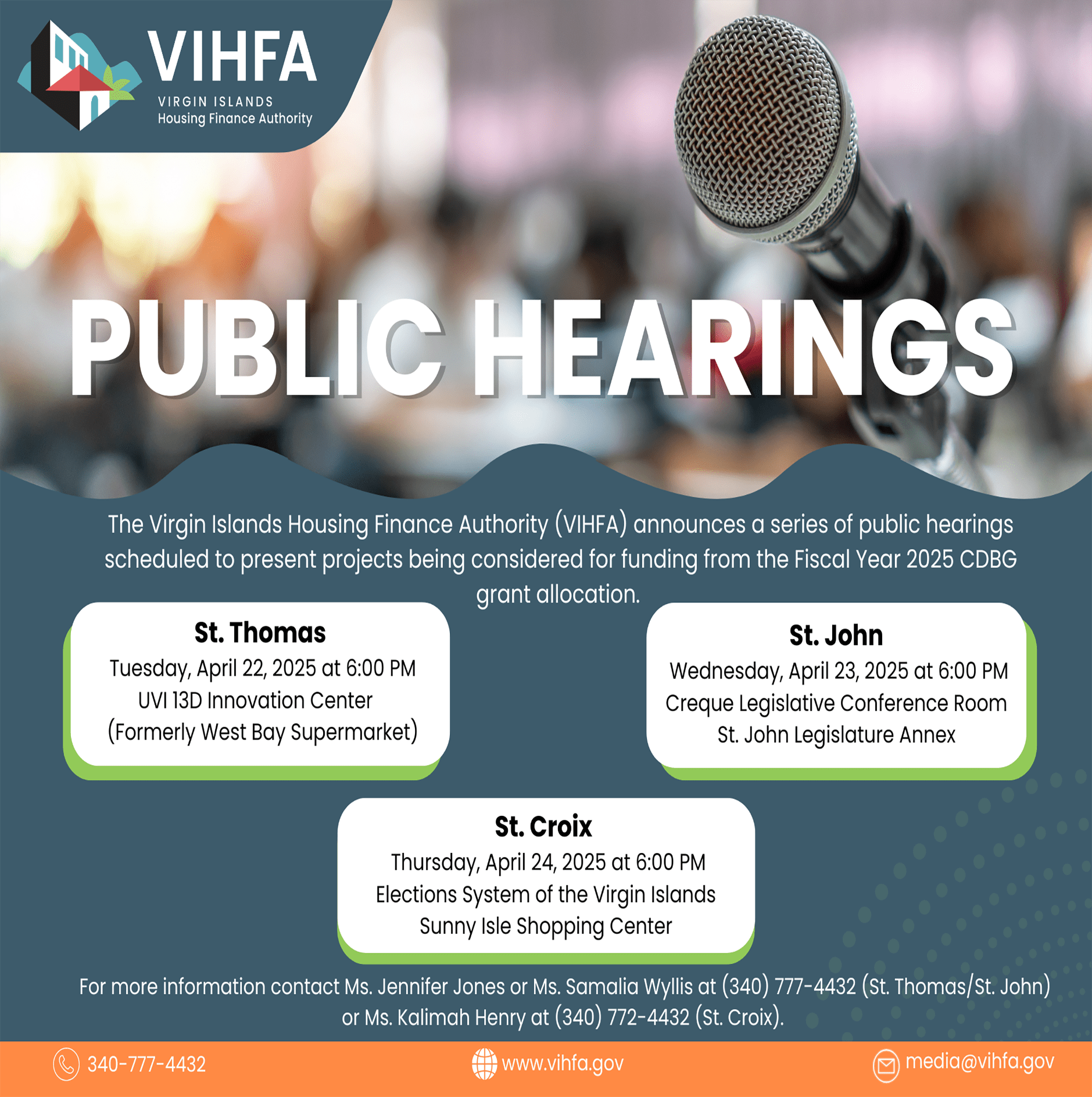There was nothing improper about awarding a contract to oversee some $8 billion in disaster recovery projects that was $107 million more than the nearest competing bid, the Public Finance Authority and Office of Disaster Recovery said in response to a lawsuit that seeks to stay the contract until the matter is adjudicated.
The PFA chose the company that represented the best value for the territory, not the lowest price, even assuming the plaintiff met all the technical requirements, which it did not, the agency said in response to the motion for a temporary restraining order, preliminary injunction and declaratory relief filed Sept. 10 in V.I. Superior Court by Hill International, Inc., the losing bidder.
Hill alleges that the PFA and ODR violated federal procurement regulations and conflict of interest rules in awarding the contract to CH2M for $137 million in August when its bid of just over $30 million was judged by the evaluation committee to be the next best, and the Request for Proposal stated a minimum of two contractors would be selected for the job.
The scope of work includes project and construction management for the rebuilding of schools, office buildings, roads, drainage systems, essential services facilities, health care centers and clinics, and other infrastructure that was damaged or destroyed by the twin Category 5 hurricanes of 2017.
The money for the territory’s reconstruction is mostly a mix of Federal Emergency Management Agency grants and Community Development Block Grants administered by the Department of Housing and Urban Development. In January, Gov. Albert Bryan Jr. announced the Rebuild USVI initiative to expedite the recovery by consolidating the work under a “Super Project Management Office,” hence the contract that is now in dispute.
The PFA removed the case to District Court on Sept. 12, arguing that the venue is proper because the sum in dispute exceeds $75,000 and because Hill is headquartered in New Jersey and does not have an office in the U.S. Virgin Islands. Hill, which was founded in 1976 and reportedly has 100 offices across 42 countries, has disputed that claim and is seeking to remand the case back to Superior Court.
In its response filed in District Court on Thursday, the PFA said the court should reject Hill’s request for a stay, saying the company did not follow the rules for filing a bid protest and because FEMA will cover 95 to 98 percent of the cost if the projects are finished by Dec. 31, 2035 — meaning time is of the essence.
According to its scoring formula for the companies that responded to the RFP, cost effectiveness was worth only 20 out of 100 possible points, while the highest score across four other evaluation factors was worth 80 out of 100 possible points, the PFA said in its response to the complaint. Those factors were Technical Evaluation-Responsiveness to the RFP, Technical Approach and Methodology, Experience and Qualification, and References.
Based on this formula, CH2M had a total average score of 86.5 out of 100 possible points, while Hill scored 81.2, according to the PFA, which is represented by David Bornn of Winston & Strawn LLP of Washington, D.C.
“Given that it received lower scores in 80 percent of the evaluation factors, Plaintiff cannot rationally succeed on the merits of its argument that its lower price should have necessarily resulted in a contract award, as this was not a [lowest price] procurement, and price was not the most important evaluation factor,” according to the response.
Moreover, an independent cost analysis prepared by a neutral third party, Boston Consulting Group, prior to the receipt of the proposals put the range at $152 to $226 million, which is in line with CH2M’s bid of $137 million, “further cementing the reasonableness of VIPFA’s award decision,” the response states.
It also says that the evaluation committee was concerned about gaps in Hill’s proposal concerning sufficient staff for the construction management scope of work, though the details are redacted after the PFA received permission to file its response under seal to protect trade secrets.
Additionally, the RFP stated that the PFA could make a single award or multiple awards, it said.
The agency also dismissed claims that the selection committee was biased because it included three Public Works Department employees, and two members of CH2M’s staff have done work for that agency. “Plaintiff alleges no facts that any individual from either the Awardee or its parent company tried to, or did, have any improper influence on the evaluation of proposals or award selection,” it said. “Rather, to the contrary … both the evaluation committee and the Awardee each certified to the lack of any actual or potential conflict of interest.”
As for Hill’s claims that taxpayers will be harmed by the award of a more expensive contract, it lacks standing to do so because it cannot show that it is a Virgin Islands taxpayer, the motion states.
“Plaintiff Hill only applied for and received a General Business License in the USVI on May 1, 2024. Given the relatively short time it has possessed a Virgin Islands’ Business License, it is highly unlikely Plaintiff has paid any taxes to the Virgin Islands Government,” the PFA alleges.
“The balance of harms clearly favors the VIPFA, whose subsidiary, the ODR, is charged with expediting disaster recovery relief to the people of the U.S. Virgin Islands … as opposed to Plaintiff, whose only articulated harm is the loss of its ability to turn a profit under the subject contract,” it said.
The PFA’s immediate need to commence contract performance is further impacted by the federal cost-share deadlines, announced in February, that expire on Dec. 31, 2035, it said.
The agency currently spends at a pace of $500 million per year but will need to double that to spend the more than $10 billion federal dollars allotted to assist the territory in the next 10 years, it said. “Larger rebuilding projects that are not completed by December 31, 2035 will revert back to the standard cost-share and will require a local match amount, which the Territory cannot afford,” according to the response. Any delays in commencing the work will risk leaving billions of dollars on the table, it said.
Moreover, “besides claiming pure financial loss, Hill has failed to specifically allege any irreparable harm that exists. To the extent Hill’s claims of loss are too vague to recover monetary damages, they are also too speculative to obtain preliminary injunctive relief,” the PFA claims.
Additionally, Hill, represented by Alex Moskowitz of Dudley Newman Feuerzeig, failed to file a bid protest within the timeframe provided by the RFP and instead filed suit, the response states.
“Ultimately, Hill seeks to cancel the award in order to reopen the bidding process and has not alleged that this relief will be unavailable after adjudication of the claim. If Hill succeeds on its claim after adjudication, Hill will be able to re-bid on the contract, and if it wins, it has identified no reason it cannot perform the contract at that time — thus, the full remedy Hill seeks is not irreparable but rather is available through trial and does not warrant preliminary injunctive relief,” the PFA stated.
“Plaintiff is a disappointed Respondent who was not chosen for award under the RFP. This case should not be in this court (or any court) at all,” it said.














